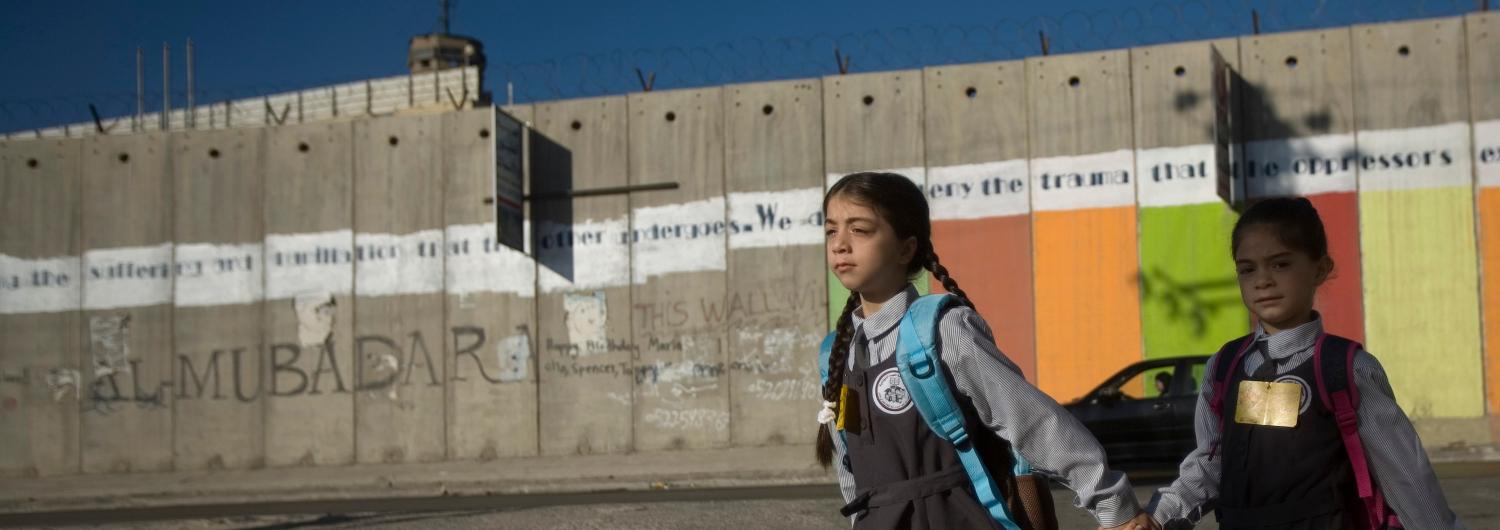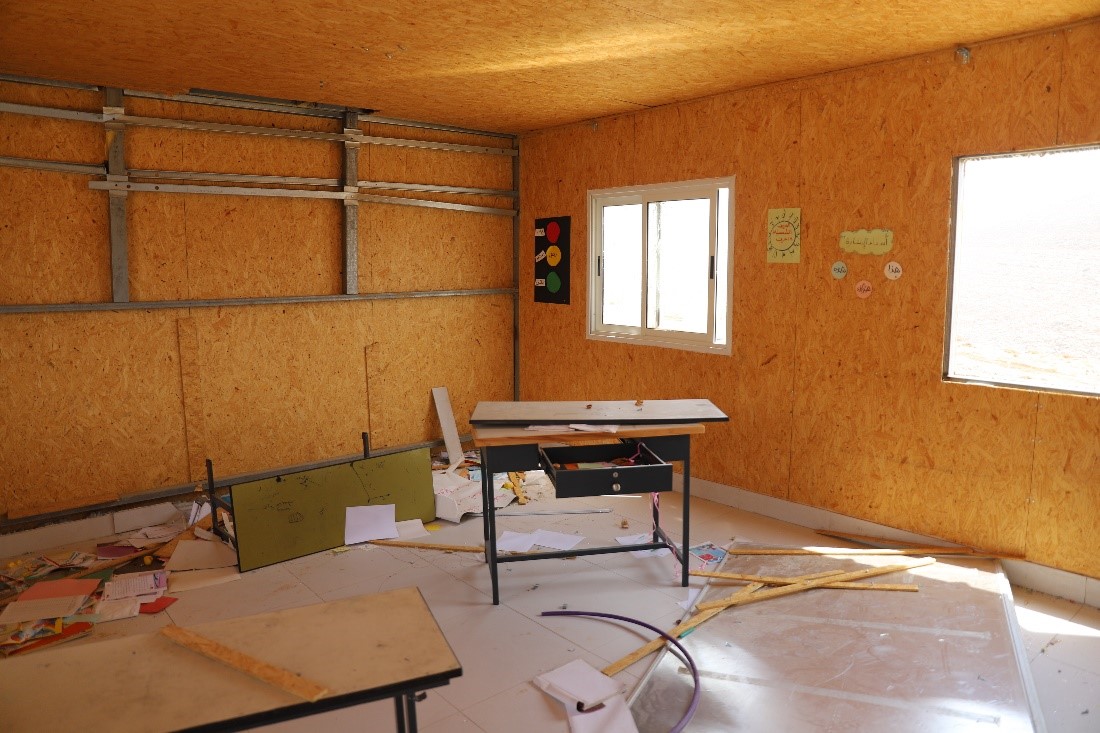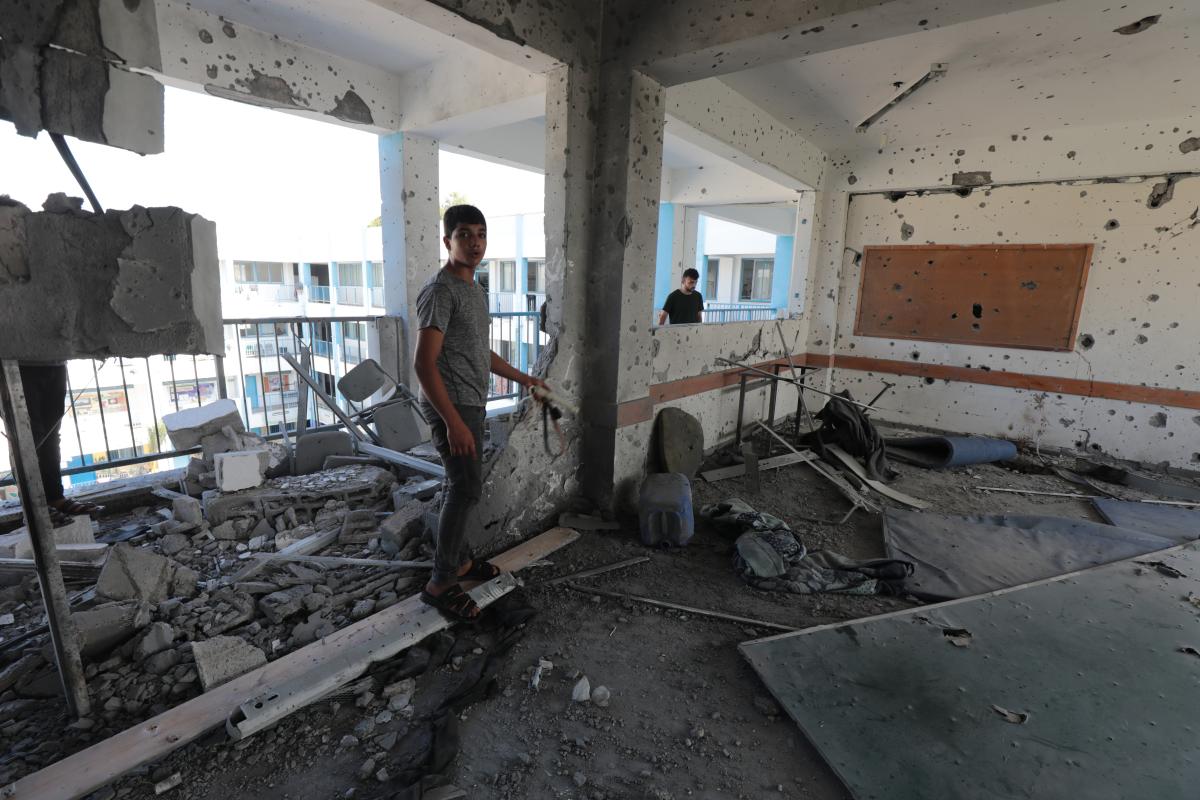News
Thousands of children in West Bank face triple threat: collapse of the education system, food crisis and destruction of the reference environment
24/01/24

Two girls walk past the annexation and separation wall built by the Israeli government in the West Bank on their way to school © WeWorld in partnership with Action Against Hunger.
On World Education Day, Action Against Hunger calls for an immediate and sustained ceasefire to protect children and their right to education during emergencies in Gaza and the West Bank.
- On World Education Day, Action Against Hunger calls for an immediate and sustained ceasefire to protect children and their right to education during emergencies in Gaza and the West Bank.
- Since 2015, we have supported over 60 schools, including kindergartens, to protect children and enable them to remain in their homes.
- In the last year around 6,000 children in the West Bank were unable to attend primary school, and around 5,000 faced daily obstacles to accessing education due to movement restrictions and violence on their way to school.
- Since 7 October 2023, more than 625,000 students and 22,564 teachers in Gaza have had no access to education, according to the Palestinian Central Bureau of Statistics. At the same time, 76% of Gaza's schools are damaged or destroyed.
Action Against Hunger is deeply concerned about how the extreme increase in violence in both the West Bank and Gaza is restricting children's right to education. Both the education systems in Gaza and the West Bank suffered limitations and extensive damage long before the attacks after 7 October 2023; however, the last few months have left an unprecedented number of child deaths, attacks on schools and restrictions on movement that do not allow children to have the education to which they are entitled.
"Our teams in the West Bank have been working for years with in the West Bank to ensure children's right to education, as set out in the Convention on the Rights of the Child, because a safe and dignified education is key to allowing families to stay in their homes, prevents displacement and also helps break cycles of violence and poverty, as well as being an essential step for the future of these children. To this end, international humanitarian organizations support children to access schools and an education in the West Bank and Gaza" says Chiara Saccardi, Action Against Hunger's regional head of operations in the Middle East.
ACCESS TO EDUCATION IN THE WEST BANK

Ein Samiya school last summer, vandalised by Israeli settlers a few days after the local community was forcibly displaced. The school was subsequently demolished by Israeli forces © Action Against Hunger.
Unfortunately, Palestinian children living in the West Bank faced difficulties attending school well before October 2023. According to external sources, in the last year alone, 5,870 children in 117 communities within the West Bank were left without primary school and a further 4,599 children faced difficulties accessing daily education due to restrictions on movement, security checks and continued subjection to harassment, intimidation and violence on their way to school.
Since then, violence has escalated: Israeli forces and settlers have killed 358 Palestinians, including 91 children, across the West Bank, according to OCHA. Access to education has also been hampered.
These numbers translate into dramatic moments, such as in late 2023, when two of their classrooms in a school that had been supported by partners n Khirbet Zanuta were burnt to the ground and then razed to the ground and demolished by settlers. A few weeks later, the surrounding communities were displaced and forcibly relocated, causing their children to lose access to education.
Forced displacement of civilians is strictly prohibited and is considered a grave breach of the Fourth Geneva Convention. Since 2015, we have supported over 60 schools, including kindergartens, to protect children and enable them to remain in their homes.
ACCESS TO EDUCATION IN GAZA

Two children walk in a destroyed classroom in the Gaza © WeWorld in partnership with Action Against Hunger.
Prior to the escalation of the conflict, education in Gaza suffered from restrictions on construction materials, which did not allow for both sufficient construction of new schools and repair of schools damaged in previous escalations. Schools in Gaza were also often closed to be reused as emergency shelters for internally displaced populations.
However, previous humanitarian access allowed for limited enjoyment of education. Today, this right does not exist in Gaza. Since 7 October 2023, more than 625,000 students and 22,564 teachers in Gaza have had no access to education, according to the Palestinian Central Bureau of Statistics. At the same time, 76% of Gaza's schools are damaged or destroyed, while 264 are being used as shelters for 1.4 million internally displaced persons in Gaza, according to the Education Group.
These unprecedented levels of violence have exposed children of all ages to death, orphanage, starvation, communicable diseases and extremely traumatic episodes, while stripping them of any available coping options. According to the Education Group, as of 23 January, 4,510 students and 231 teachers had been killed in Gaza.